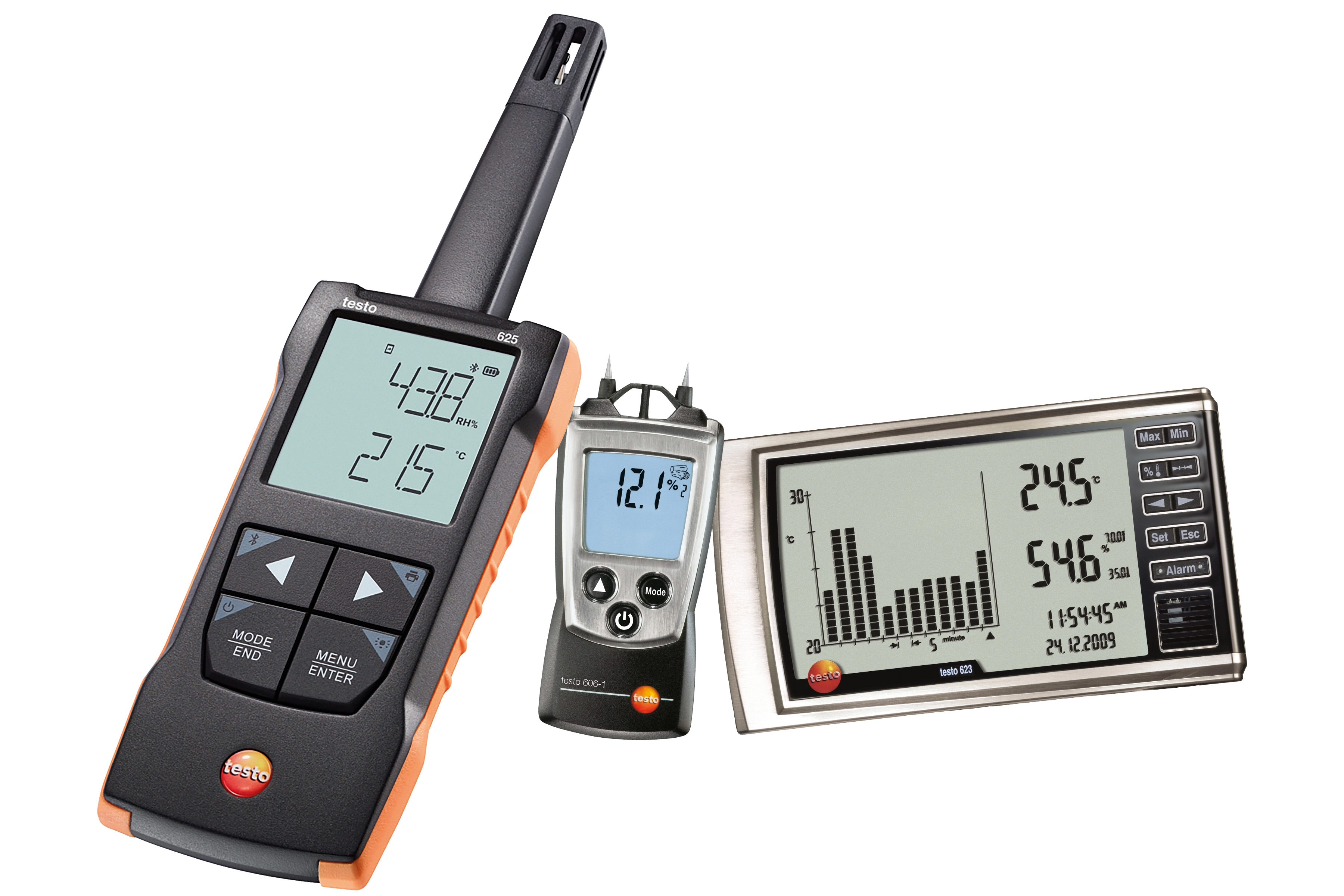The Ultimate Overview to Wetness Meters: A Comprehensive Introduction and How They Can Save You Cash
In the realm of structure upkeep, building and construction, and different industries, the relevance of precisely measuring dampness degrees can not be overstated. Dampness meters work as important tools in identifying and keeping track of moisture material in materials, assisting in avoiding pricey damages and ensuring the top quality of items. Understanding the subtleties of various sorts of dampness meters, their applications, and the prospective cost-saving benefits they use can be a game-changer for experts and organizations alike. Discovering how these tools can not only enhance processes however additionally add to financial cost savings is a trip worth starting.
Kinds Of Moisture Meters
One typical type is the pin-type wetness meter, which determines the electrical resistance between two pins put right into a product. Pinless wetness meters, on the various other hand, usage electromagnetic sensor plates to scan a bigger location without triggering damages to the material's surface.

Infrared wetness meters gauge the thermal properties of a material to determine its wetness web content non-invasively, making them helpful for applications where pin or pinless meters might not be suitable. Comprehending the different kinds of dampness meters available can assist sectors choose the most suitable device for their particular wetness dimension needs.

Benefits of Making Use Of Wetness Meters
Dampness meters offer vital benefits in precisely examining and monitoring wetness levels in diverse products and environments. One of the key advantages of utilizing wetness meters is the prevention of possible damages caused by excess wetness.
In addition, utilizing moisture meters can bring about boosted energy efficiency. By determining areas with high moisture degrees, such as leaks or inadequate insulation, modifications can be made to improve power conservation and decrease utility costs. In farming settings, dampness meters play a vital role in maximizing plant yields by enabling farmers to check soil dampness levels and make educated irrigation choices. In general, the advantages of utilizing dampness meters cover across various sectors, offering cost-effective options and advertising much better top quality control techniques.
Exactly How to Pick the Right Dampness Meter
Picking the suitable wetness meter entails considering crucial variables such as material compatibility, measurement variety, and calibration precision. When choosing a wetness meter, it's necessary to ensure that the meter appropriates for the certain product you will certainly be screening. Various materials have varying electrical buildings that can affect moisture analyses, so selecting a meter developed for your material is important for precise outcomes. In addition, take into consideration the measurement range of the moisture meter. Guarantee that the meter can find dampness degrees within the variety needed for your applications. Calibration precision is an additional critical factor to remember. Choose a moisture meter with trustworthy calibration to make certain regular and exact readings. Some meters visit this page might call this article for regular calibration modifications, so understanding the calibration process is very important. By thoroughly assessing these factors, you can choose a moisture meter that fulfills your demands and supplies precise moisture dimensions for your tasks.
Appropriate Techniques for Dampness Meter Usage

Price Savings Through Moisture Meter Applications
Exactly how can the strategic utilization of moisture meters bring about significant price savings throughout various industries? Wetness meters play an essential function in cost financial savings by preventing prospective damages and guaranteeing quality assurance in different industries. In the agriculture industry, dampness meters aid in identifying the optimum time for collecting plants, protecting against excess or over-drying wetness that can influence the final item's quality. This exact tracking aids farmers avoid unnecessary losses and maximize their yield.
Similarly, in construction, wetness meters help protect against costly damages by discovering moisture levels in structure materials, such as wood or concrete, which can bring about structural problems if not dealt with promptly. By determining trouble locations at an early stage, contractors can take restorative procedures to avoid considerable repair work or substitutes, inevitably conserving time and money.
Moreover, in the food handling industry, wetness meters are important for keeping track of item quality and making sure conformity with safety and security regulations. By accurately determining moisture web content in food, producers can avoid wasting, keep quality, and lower waste, causing substantial expense savings. In general, the critical application of wetness meters is a beneficial financial investment that can bring about significant cost decreases and improved effectiveness across different industries.
Conclusion
Finally, wetness meters are important tools for determining and discovering wetness degrees in various materials. By making use of the appropriate dampness meter and complying with appropriate special info techniques, users can effectively stop expensive damages triggered by excess dampness. Buying a high quality dampness meter can bring about considerable expense savings in the future by recognizing possible problems at an early stage and enabling punctual remediation. Eventually, dampness meters are essential tools for maintaining the integrity and long life of frameworks and materials.
Wetness meters serve as indispensable devices in detecting and monitoring moisture material in products, aiding in stopping pricey damages and making certain the high quality of items. Infrared dampness meters measure the thermal homes of a product to determine its wetness web content non-invasively, making them useful for applications where pin or pinless meters might not be appropriate.Wetness meters supply important benefits in properly keeping an eye on and examining moisture degrees in diverse products and settings. In agricultural settings, wetness meters play an essential function in maximizing plant returns by making it possible for farmers to monitor soil wetness levels and make educated watering decisions.In conclusion, moisture meters are useful devices for determining and finding wetness degrees in different products.